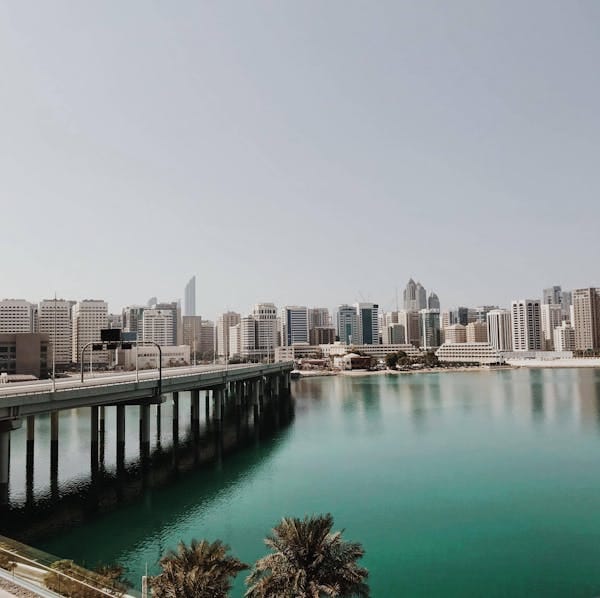The Industrial City of Abu Dhabi (ICAD) is a key pillar in the UAE’s industrial and economic infrastructure. As one of the largest and most advanced industrial zones in the country, ICAD serves as a catalyst for economic diversification, manufacturing innovation, and global investment.
Located in the emirate’s Mussafah area, ICAD offers more than just land and facilities—it offers a complete ecosystem designed for industrial growth and international competitiveness. This article will explore why the Industrial City of Abu Dhabi is a vital component of the nation’s economic strategy and a prime destination for industrial businesses.
Introduction to the Industrial City of Abu Dhabi (ICAD)
Established and managed by ZonesCorp, a part of the Abu Dhabi Department of Economic Development (ADDED), ICAD covers more than 40 square kilometers and is divided into multiple zones: ICAD I, ICAD II, and ICAD III. Each is tailored to specific types of industries, including heavy manufacturing, light industries, logistics, and high-tech production.
ICAD is strategically located just 30 kilometers from central Abu Dhabi, offering close proximity to the Abu Dhabi International Airport, Khalifa Port, and major highways, ensuring easy access to both local and global markets.
The Structure of ICAD Zones
The ICAD development has been methodically divided to serve various industrial sectors efficiently:
ICAD I – Specializes in heavy industries like steel, metal fabrication, and engineering.
ICAD II – Hosts medium-sized manufacturing units including electronics, chemicals, and food processing.
ICAD III – Designed for specialized industries, technology-driven firms, and mixed-use operations.
These zones offer plug-and-play infrastructure and allow businesses to quickly establish or expand their industrial footprint.
Core Benefits of Setting Up in ICAD
1. State-of-the-Art Infrastructure
ICAD is designed with high-grade roads, power and water networks, telecom services, and dedicated waste management systems. This ensures uninterrupted operations for industries that require round-the-clock production.
2. Business-Friendly Policies
Entrepreneurs and foreign investors benefit from 100% foreign ownership, repatriation of profits, and streamlined licensing under ZonesCorp. The administrative procedures are fast, transparent, and supportive of long-term business success.
3. Strategic Location
Being close to Mussafah Port and Abu Dhabi International Airport enhances supply chain efficiency. Moreover, ICAD is connected to Etihad Rail, the UAE’s growing national railway network, which offers even broader logistics possibilities.
4. Skilled Workforce Access
ICAD is near several labor accommodations and educational institutions, ensuring access to both skilled and semi-skilled labor. The area also has on-site housing options for workers, making daily operations smoother and more efficient.
Industries Operating Within ICAD
A wide variety of industries operate in the Industrial City of Abu Dhabi, including:
Steel and Metal Fabrication
Building Materials and Construction Products
Plastics and Packaging
Chemical and Petrochemical Processing
Automotive Parts Manufacturing
Food and Beverage Production
Medical Equipment and Supplies
Oil and Gas Services
The diversity ensures a self-sustained industrial ecosystem where businesses can collaborate, source locally, and grow sustainably.
Key Tenants and Industrial Leaders
Many prominent national and international firms have chosen ICAD as their base of operations. These include:
Emirates Steel Industries
Ducab Cable Manufacturing
Agthia Food and Beverage Group
Al Jaber Group
Al Masaood Group
These companies are not only contributing to the local economy but also exporting globally, showcasing ICAD’s international relevance.
ICAD and Abu Dhabi Vision 2030
ICAD plays a crucial role in supporting the Abu Dhabi Economic Vision 2030, a strategic initiative focused on transforming the emirate into a diversified and knowledge-based economy.
Through ICAD, the government aims to:
Attract global investments
Reduce reliance on oil revenues
Create sustainable job opportunities
Enhance UAE’s industrial self-reliance
By aligning with this vision, ICAD helps reinforce Abu Dhabi’s commitment to innovation, technology, and responsible development.
Sustainability and Green Manufacturing
Environmental sustainability is a priority within the Industrial City of Abu Dhabi. Companies operating within the zone must comply with strict environmental regulations. ICAD promotes:
Energy-efficient buildings
Waste recycling and management systems
Use of renewable energy sources
Green supply chain practices
These efforts make ICAD a forward-thinking industrial hub aligned with global environmental standards.
Residential and Lifestyle Facilities Nearby
ICAD is not just about industry—it also supports the well-being of its workforce. Nearby areas such as Mohammed Bin Zayed City, Mussafah, and Baniyas offer housing, schools, hospitals, and shopping centers. Many companies also offer on-site accommodation for workers to reduce commute times and improve productivity.
Future Developments in ICAD
As industrial demand continues to grow in the UAE and the region, ICAD is planning further expansion. ICAD IV and ICAD V are expected to focus on:
Smart manufacturing
Artificial Intelligence (AI) integration
Robotics and automation
Advanced logistics and warehousing
These developments will ensure that the Industrial City of Abu Dhabi remains at the forefront of innovation and productivity.
Conclusion: ICAD as a Smart Investment Choice
The Industrial City of Abu Dhabi offers the perfect mix of infrastructure, policy support, strategic location, and industrial diversity. It is not just an industrial zone—it is a growth engine for businesses seeking to enter or expand in the Middle East.
Whether you are in manufacturing, logistics, or high-tech production, ICAD provides a foundation that supports both current success and future growth. If you’re considering an investment in the UAE’s industrial sector, ICAD should be at the top of your list.


